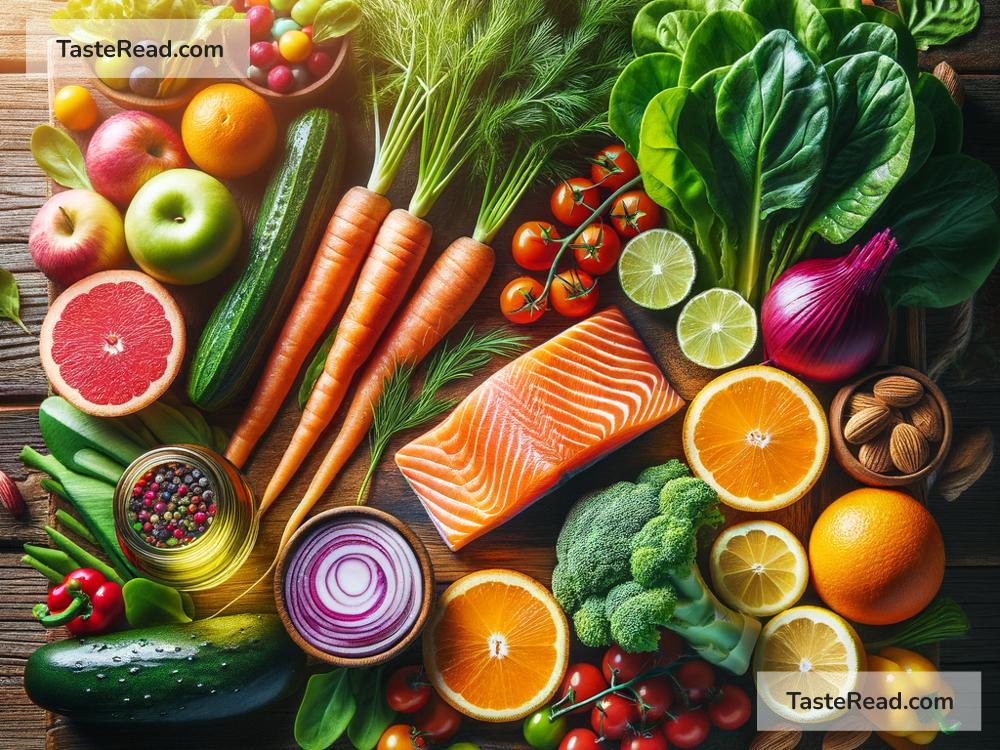Foods That Reduce the Risk of Retinal Detachment
Your eyes are one of your most precious senses, so taking care of them is crucial. One less-known but potentially serious eye condition is retinal detachment. This occurs when the retina—a thin layer of tissue at the back of your eye responsible for processing light and sending signals to your brain—separates from its normal position. If left untreated, retinal detachment can lead to vision loss. While factors like aging, injury, and medical conditions play a role in retinal detachment, a healthy diet can help maintain strong and healthy retinas and reduce the risk of eye problems. In this article, we’ll explore foods that can promote eye health and potentially lower your risk of retinal detachment.
The Role of Nutrition in Eye Health
Before diving into specific foods, it’s important to understand how nutrition impacts your eyes. Just like the rest of your body, your eyes need vitamins, minerals, healthy fats, and antioxidants to function properly. Certain nutrients can strengthen the retina, reduce inflammation, and protect against oxidative stress—factors that may contribute to retinal detachment. Eating a balanced and nutrient-rich diet doesn’t just improve overall health; it also ensures your eyes are getting what they need to stay in good shape.
1. Foods Rich in Vitamin C
Vitamin C is a powerful antioxidant that supports the blood vessels in your eyes and may help prevent damage to the retina. It fights free radicals—unstable molecules that can harm cells—and reduces inflammation that could escalate eye issues. Citrus fruits like oranges, grapefruits, lemons, and limes are excellent sources of vitamin C. They also hydrate you, which is beneficial for overall eye health. Other Vitamin C-rich foods include strawberries, bell peppers, broccoli, and kale.
2. Leafy Green Vegetables
Leafy greens like spinach, kale, and Swiss chard are packed with nutrients like lutein and zeaxanthin. These two antioxidants are known for their ability to filter blue light and protect the retina from oxidative damage. They also contribute to overall retinal strength, promoting resilience against detachment. A study published in Eye Health Journal even highlights that regular consumption of these greens may lower your risk of age-related eye conditions. Including generous servings of spinach salad or kale smoothies in your diet can make a big difference.
3. Omega-3 Fatty Acids
Omega-3 fatty acids are essential fats found in foods like salmon, mackerel, sardines, and flaxseeds. These healthy fats play a vital role in maintaining the retina’s function and structure. They boost blood flow to the retina and reduce inflammation in the eyes. Omega-3s are also beneficial for preventing dry eyes, which is a common problem linked to more severe eye issues. If you don’t eat fish, you can opt for chia seeds, walnuts, or plant-based omega-3 supplements.
4. Foods with Vitamin E
Vitamin E works alongside Vitamin C to protect against free radical damage in the retina. Nuts and seeds are great sources of Vitamin E—almonds, sunflower seeds, hazelnuts, and peanuts are particularly rich in this essential nutrient. Next time you’re craving a snack, grab a handful of almonds instead of chips; it’s not just good for your eyesight but also for your overall health.
5. Carotenoid-Rich Foods
Carotenoids are natural pigments found in plants that promote eye health. Beta-carotene, for instance, is converted into Vitamin A in the body, essential for maintaining good vision and preventing retinal issues. You can find beta-carotene in carrots, sweet potatoes, squash, and pumpkin. Eating these brightly colored vegetables not only makes your meals more appetizing but also supports eye health.
6. Zinc-Rich Foods
Zinc is a mineral that plays a crucial role in eye health by helping Vitamin A create melanin, which protects the retina. Zinc also supports the tissue structure of the retina and may reduce the risk of retinal detachment. Foods like oysters, beef, chicken, beans, nuts, and whole grains are rich in zinc and worth including in your diet.
7. Dark Berries
Strawberries, blueberries, blackberries, and raspberries aren’t just delicious—they’re also great for your eyes. These berries are rich in antioxidants like anthocyanins, which protect the retina from oxidative stress and improve circulation within the eyes. Whether you enjoy them as a snack, in a smoothie, or sprinkled over oatmeal, dark berries can give your eyes a protective boost.
8. Eggs
Eggs are a simple and affordable source of lutein and zeaxanthin, along with zinc. The yolks contain these nutrients, which are important for maintaining retinal health. Eggs are also versatile—you can boil, fry, or scramble them as part of a healthy, eye-supporting breakfast.
9. Whole Grains
Whole grains like oats, quinoa, and brown rice contain nutrients like zinc and Vitamin E that benefit your eyes. Unlike refined grains, whole grains have a lower glycemic index, which means they keep your blood sugar steady and reduce the risk of damage to the delicate blood vessels in your retina.
Final Thoughts
While no food can guarantee complete protection from retinal detachment, eating a diet rich in eye-friendly nutrients can significantly lower your risk and improve your overall eye health. Incorporate a variety of fruits, vegetables, healthy fats, nuts, seeds, and whole grains into your meals, and remember to stay hydrated. Alongside a healthy diet, regular eye check-ups and protecting your eyes from trauma are essential for keeping your vision clear and your retinas safe. By making smart food choices today, you’re investing in a future of better eye health.


